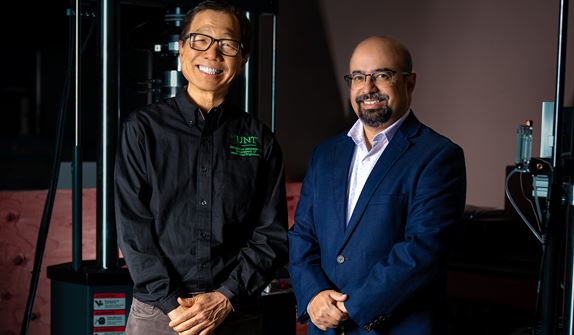The University of North Texas’ (UNT) College of Engineering, Denton, Texas, USA, is currently conducting research for the US Army Combat Capabilities Development Command (DEVCOM) Army Research Laboratory (ARL). The research is focused on analysing Laser Beam Powder Bed Fusion (PBF-LB) AM using equipment located in UNT’s Center for Agile and Adaptive Additive Manufacturing.
Herman Shen, chair of UNT’s Department of Mechanical Engineering, and Associate Professor Hector Siller have been awarded an $800,000 grant from DEVCOM ARL. The grant was awarded through a merit competition administered under the policy and guidance of the Office of the Under Secretary of Defense for Research and Engineering. Shen and Siller will lead teams of UNT undergraduate and postdoctoral researchers to assist with the project. The project aims to develop more reliable and durable replaceable parts that can be produced on military vessels in the future.
The military has reportedly shown interest in PBF-LB to accelerate the manufacturing process. “Submarine or aircraft carriers go out to sea for up to six months sometimes,” Shen explained. “If they need repairs, they can’t just easily call someone to send the parts. They have to build their own.”
In order to minimise the risk of manufacturing defects, Shen will be researching the process in reverse in order to pinpoint where defects first form. The team will examine the end product and test for any defects or deformations in the parts. They will then use artificial intelligence to identify where the defect could have originated.
Siller and his team will also examine the entire process, including the analysis of fabrication plans, microstructure assessments, and monitoring processes. The goal is to gain a comprehensive understanding of the materials’ behaviour during manufacturing and post-production testing.
After using their comprehensive findings to identify areas for improvement, Shen and Siller will incorporate those changes and begin the process again. “We will have feedback from that performance, reform the methods and then have a closed loop of improvement,” shared Siller.
The grant will span over four years, with progress reports being submitted annually. The manufacturing and testing will take place at UNT’s Discovery Park and a researcher at Wright-Patterson Air Force Base will reportedly also visit to evaluate their testing process.
“Aerospace components will most likely be made using this technology in the future,” stated Siller. “It’s able to fabricate complex shapes such as turbine blades or engine parts. The nature of this research is to make sure those parts are reliable.”
Subscribe to AM Chronicle Newsletter to stay connected: https://bit.ly/3fBZ1mP
Follow us on LinkedIn: https://bit.ly/3IjhrFq
Visit for more interesting content on additive manufacturing: https://amchronicle.com


